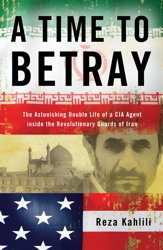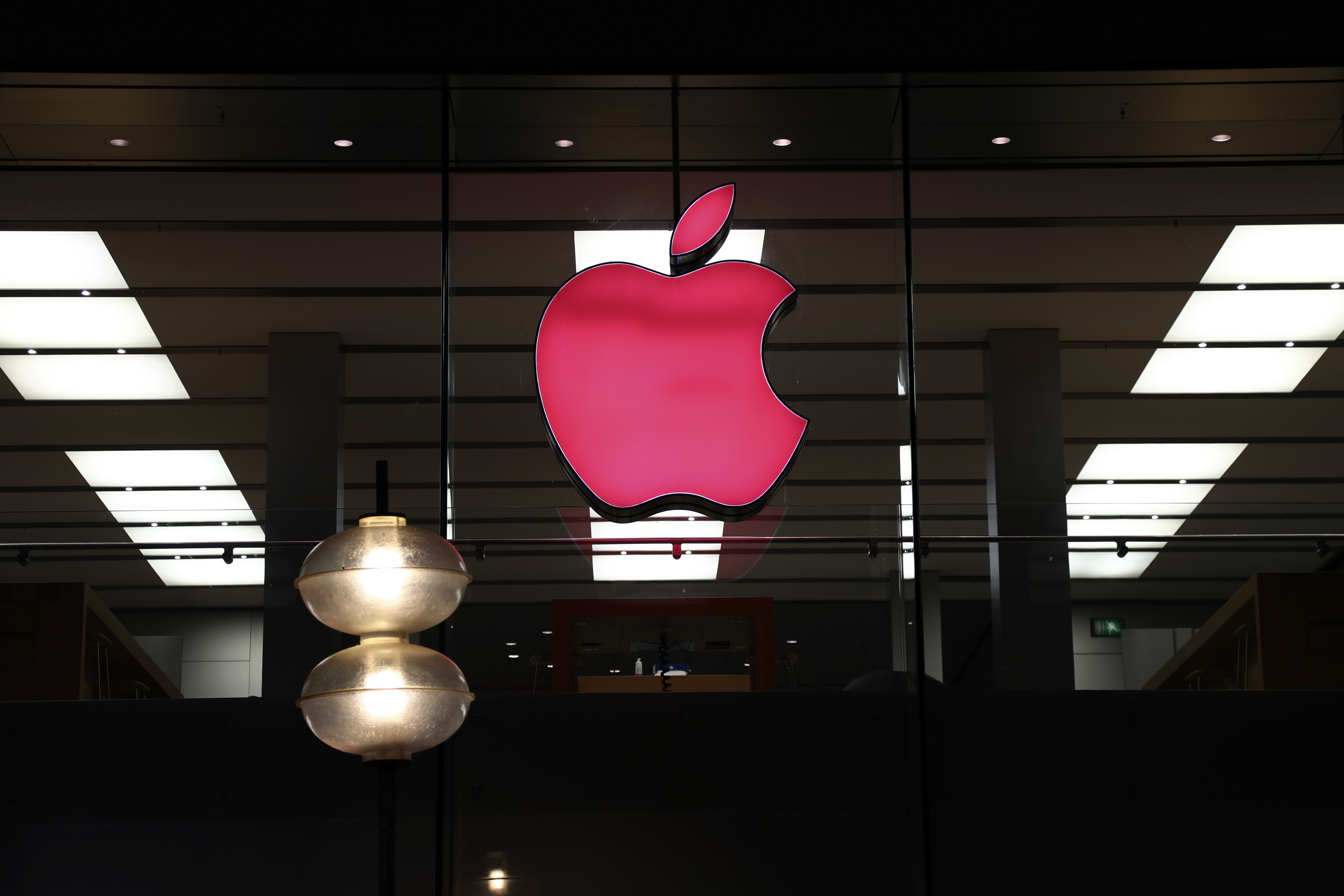 Reza Kahlili (a pseudonymous pen name) claims to have lived a double life. To his friends, family and colleagues in the Iranian Revolutionary Guards Corps, he was a regime loyalist working in the dutiful service of the Islamic Republic of Iran. But to the CIA, this young revolutionary was known as "Wally," and for over a decade this agency insider claims to have relayed sensitive information about Iran's most secretive military body to the U.S. intelligence community.
Reza Kahlili (a pseudonymous pen name) claims to have lived a double life. To his friends, family and colleagues in the Iranian Revolutionary Guards Corps, he was a regime loyalist working in the dutiful service of the Islamic Republic of Iran. But to the CIA, this young revolutionary was known as "Wally," and for over a decade this agency insider claims to have relayed sensitive information about Iran's most secretive military body to the U.S. intelligence community.
RCW recently spoke with Kahlili about his new book, A Time to Betray. This interview has been edited for length and clarity:
RealClearWorld: Why Did you join the Iranian Revolutionary Guard Corps (IRGC)?
Reza Kahlili: One of my close childhood friends had decided to join, and in the beginning, the Guards came from the poor sections of Iran. It was a tight fraternity; we even called each other "brother." It was built to secure the country, but it was also a way to build up the country's infrastructure and give back to the people.
RCW: You worked in the computer department, correct?
RK: Yes, it was late 1979, just a few months after the revolution, and I assisted in connecting bases around the country to assure communication and information throughout the corps.
RCW: Then, you became a spy for the U.S. Central Intelligence Agency. Why?
RK: The purpose of the revolution had changed. A radical minority was was now suppressing the majority. The Shah's officers - even those who surrendered willfully - were being executed, and plain-clothed Hezbollahi thugs were threatening people in the streets. Students were being tortured, and women were being raped in Evin prison.
RCW: And with this change the Guards also changed. The IRGC has been a hot topic since last year's election upheaval. What is the IRGC?
RK: There has been some misunderstanding about who is in charge in Iran, and many have falsely argued that the Revolutionary Guards are in charge; that Iran is really a military dictatorship. This is wrong. The IRGC will always be under the control of Iran's radical clerics. Its leaders can be, and have been, replaced. [Former IRGC chief commander Yahya Rahim] Safavi is just one example.
RCW: Who Are These "Radical Mullahs?"
RK: It all begins with Supreme Leader Khamenei, but you have other radical ayatollahs, such as [Ayatollah Mohammad Taghi Mesbah] Yazdi. He is an influential cleric in Qom, and also the spiritual adviser to Mahmoud Ahmadinejad. He helped Ahmadinejad get elected in last year's fraudulent presidential election.
Many of these clerics hold influential positions in government; especially in the intelligence units. Khamenei has representatives on every base and in every governmental department. The power structure begins with him.

RCW: So is the IRGC religious, secular or both?
RK: Most join the IRGC because they truly want to see the Islamic revolution spread around the world. But the organization's legitimacy, once again, begins with the clerics, so religion plays a huge role.
RCW: The Guards have also been compared to a corporation.
RK: Yes, what started as a small band of brothers became a security apparatus, a terrorist organization and then a ministry. Money was funneled to the IRGC, and it became heavily involved in black market commerce; buying and selling arms.
RCW: What do you think of President Obama's Iran policy?
RK: I had high hopes he'd study the attempts of previous administrations to negotiate with the Iranian regime. President Obama hoped he could put a new face on America abroad, and that would then bring Iran to the negotiating table. This was a misunderstanding, and a failure to learn from the efforts at negotiation made by his predecessors.
RCW: What about Obama's sanctions plan?
RK: Can you close the black market? Even during Reagan's embargo, NATO was selling items to Iran. The leadership doesn't care about the well being of the country, and sanctions will not faze them so long as they can get what they want on the black market. Sanctions are another illusion of the West.
The world must then understand the implications should Iran go nuclear. They will be untouchable. They'll move arms more freely, and they'll be able to threaten the world's energy markets. Mutual Assured Destruction (MAD) will not work on a suicidal state.
RCW: I'd like you to clarify that last point, because the activity you describe - moving arms, threatening energy outlets and acting with impunity - does not sound suicidal. What you describe is certainly troubling, but is it really suicidal?
RK: It is my opinion that they are suicidal. What if the Supreme Leader suddenly decided that the "Mahdi" was returning, and the end of days was near? It may all sound crazy to Westerners, but these people believe it deeply.
RCW: But Iran is believed to already possess chemical weapons. If they're indeed suicidal, why not use those?
RK: Can you wipe Israel off the map with chemical weapons? Can you kill millions? First impact is crucial, because no matter what Iran does, afterward, Iran will be no more. So in that case, would they rather fire ten missiles armed with chemical weapons to kill thousands, or fire nuclear-tipped missiles and shake the world?
RCW: So is containment out of the question?
RK: Iran doesn't hate the United State because of Iraq; it doesn't hate the United States because of Israel. They hate the United States because of the Qur'an. They believe Islam should conquer the world.
What would the consequences be for the world if Iran attacked the oil Gulf states, or Israel or Europe?
Why does a suicide bomber blow himself up? Answer that, and then tell me if containment will work.
*****
Kahlili claims his book first required approval from a U.S. intelligence body prior to publication. The opinions expressed in this interview are Kahlili's alone, and they do not necessarily reflect the editorial position of RealClearWorld.
UPDATE: David Ignatius reviews the book, and confirms that Mr. Kahlili had worked with the Central Intelligence Agency.











